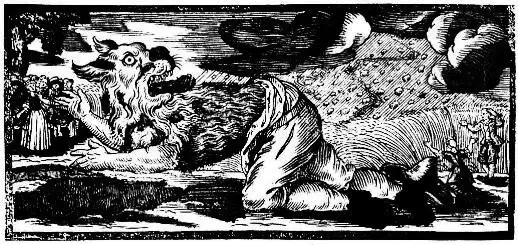Throughout all of the articles in my Hidden History of English series the common thread between all unexpected spellings, or words which seem not to follow English rules has been their status as borrowed words. (If you’re interested in some more hidden English history, check out my series here.)
The word “human” is no different here.
Humen is not the plural form of human because it comes into English through Latin. Words like man and woman become men and women because they are native English words. It’s similar to other -en plurals: oxen and children. Words borrowed into English don’t experience the same changes as native words do.
Human’s Latin Origins
The word “human” looks like it could be related to the word “woman”. Both of these words look like they have the same base word, -man, with a prefix attached to modify that base. While this is the case for woman the story behind human is completely different.
Human comes into English from the Latin word humanus. In Latin, this word also means human.
Humanus is a Latin word which is derived from the Latin noun humus. This might make you think about a delicious spread made from beans (that’s actually spelt with two Ms, hummus.) but in Latin this word meant “soil”.
Humanus is formed in Latin through the word humus and the addition of an affix -anus which takes a noun and creates a new noun associated with the base word. This results in humanus which means human but retains that association with the Earth or soil.
It basically means “being of the soil/earth”. The ancient Romans were an agricultural society and they clearly closely associated mankind with the fields they cultivated their livelihoods in.
Prior to English borrowing the word human, older forms of English simply used the word “man” to refer to both male and female human beings.
You can see this in the usage of Man to refer to all people, both men and women, and in the word “mankind”.
How is Woman Different?
Woman has an entirely different story from human.
As we mentioned above, in Old English the word to refer to all humans was mann (the direct ancestor to the modern English word “man”). This word did not refer at all to male human beings.
So in order to describe female people, Old English attached a prefix to the word mann to create a new gendered noun. The female form of the noun was wifmann (female + human).
The word for male humans in Old English was wer. This word is only preserved in modern English as a prefix that attaches to animal names to indicated a man who can transform into that animal, such as a werewolf.
Today, the word we use to refer to female humans is woman. This word is a direct ancestor of that Old English word wifmann.

Why not Humen?
Words that are borrowed into English through other languages did not experience the same type of language environment that lead to irregular word forms like: teeth, mice, or men.
When loanwords come into English, they transform using the regular rules. Speakers of all languages prefer simplicity. There is no reason why speakers will choose to attach irregular patterns on to new words. Irregularities exist in language when change happens. All irregular forms in English exist because of language evolution over hundreds of years, not because of conscious decision.
So when English speakers adopted the word “human”, they decided to give it a regular plural ending (humans).
Why is the Plural of Man “Men”?
Words like “man” and “woman” have irregular plural forms because they are words that have existed in English since its beginning.
The English language has over 1400 years of turbulent history. The Anglo-Saxons (the people who first spoke English) underwent a lot of trials throughout their history. They were subjugated and ruled over by many other tribes of people who spoke different languages from them throughout their history. This close contact with other cultures and languages deeply affected the English language.
Old English was a completely different form of English from what we speak today. It’s incomprehensible from modern English. If you’re interested in seeing an example of Old English, check out this article where I explore native English words.
The words with irregular plurals in modern English are examples of sound shifts that occurred earlier in the language’s history. Sounds change all the time in language as people begin to have slight variations in the way they pronounce words. Over time, this leads to a disconnect between older and newer words in a language. Given enough time (thousands of years) this is how new languages form.
I-Mutations
Mutations were a system of vowel changes that happened with Old English words when they became plural (and in other environments).
We can see the legacy of this change in word pairs like mouse/mice, tooth/teeth, foot/feet, goose/geese, and man/men.
This change is prevalent throughout the entire Germanic language family whose member languages also experience a similar vowel shift.
Conclusion
Ultimately, the different paths which words take to become new vocabulary in a language affect the way they transform in that language.
Human is not a native English word. This is a loanword from Latin, so the ways it changes are very different from native English words such as man or woman which have been with English since its beginning.



